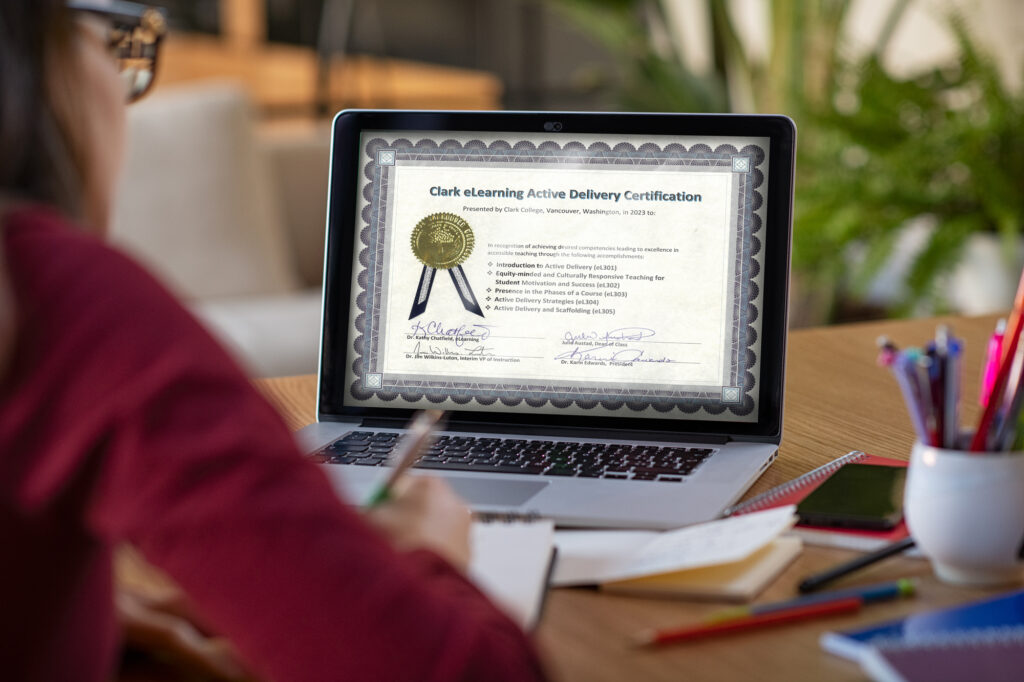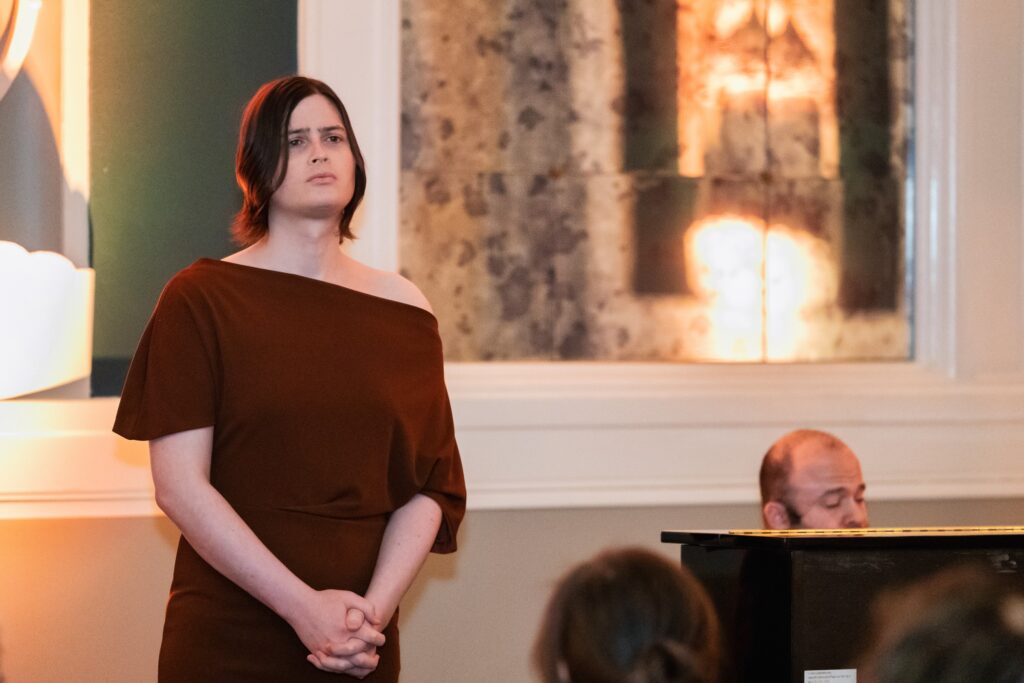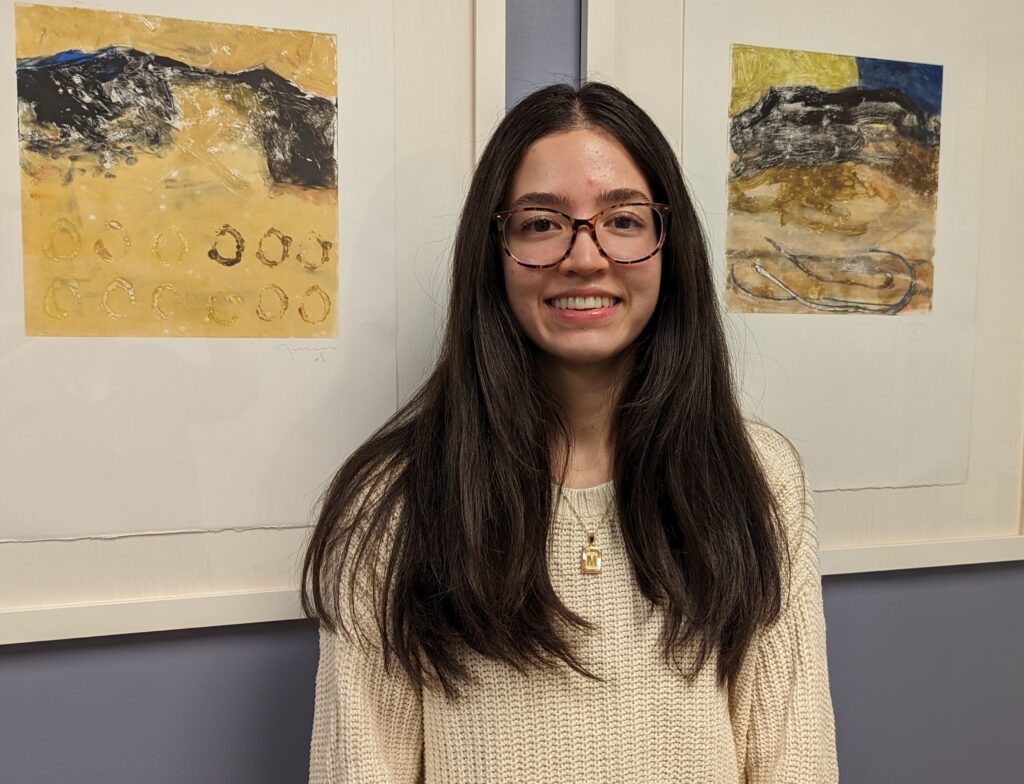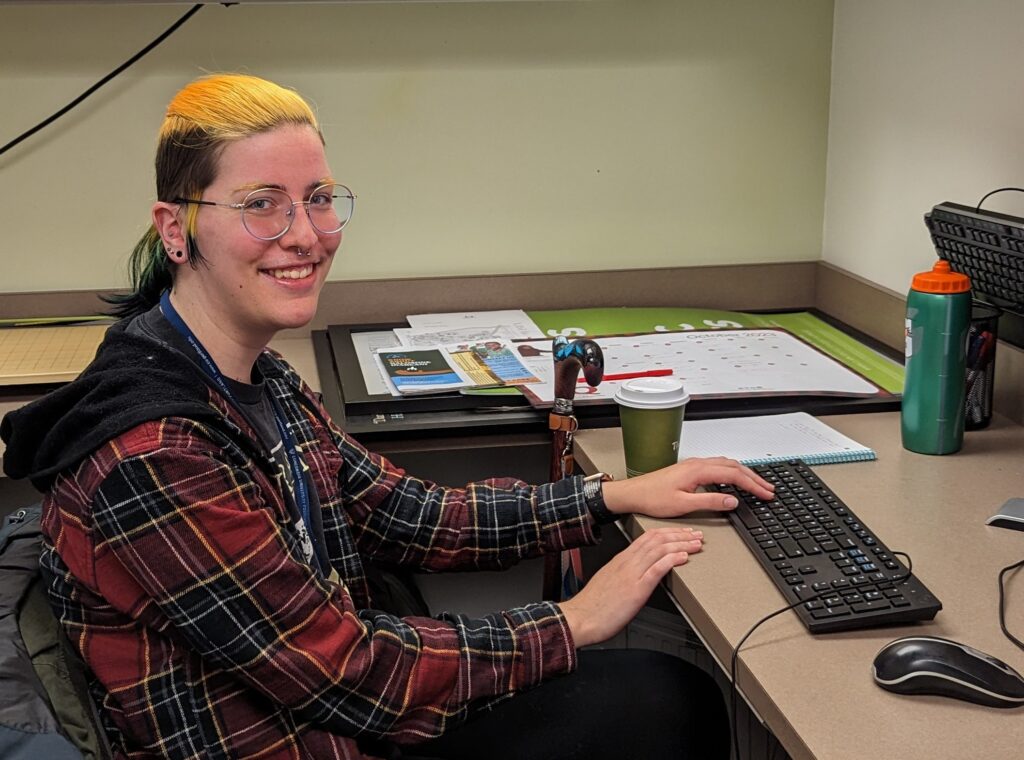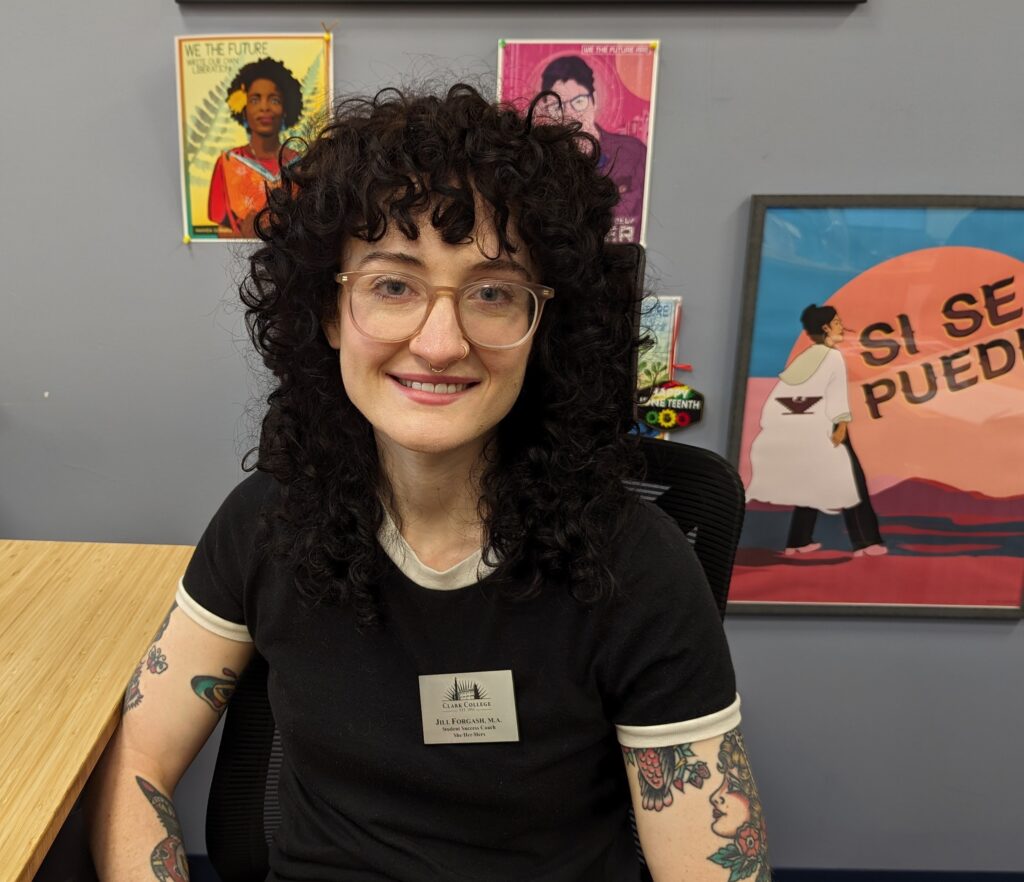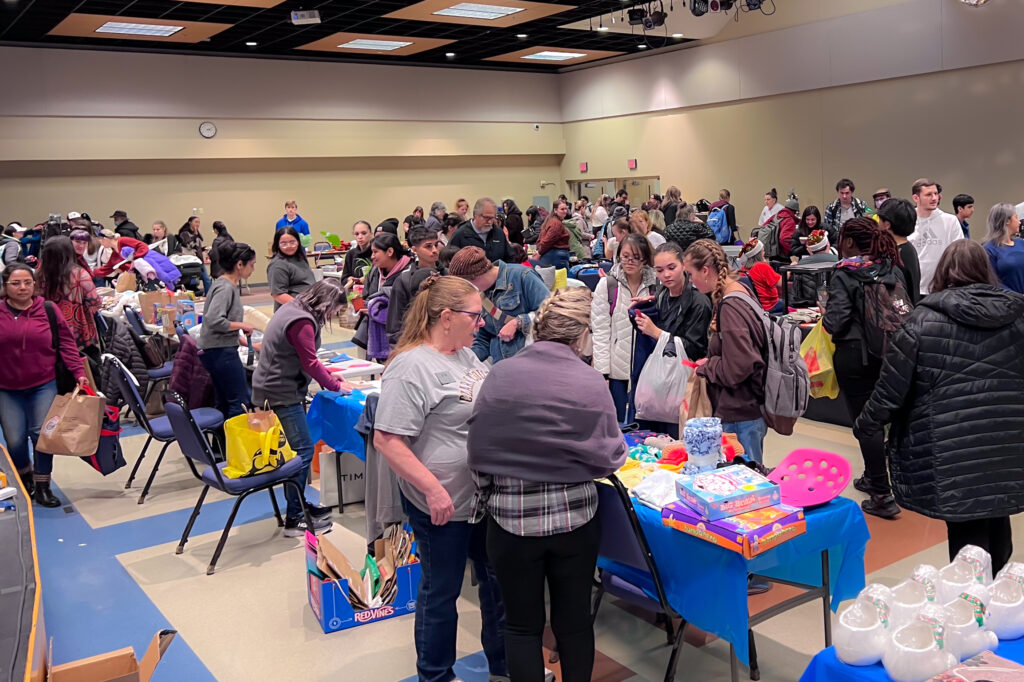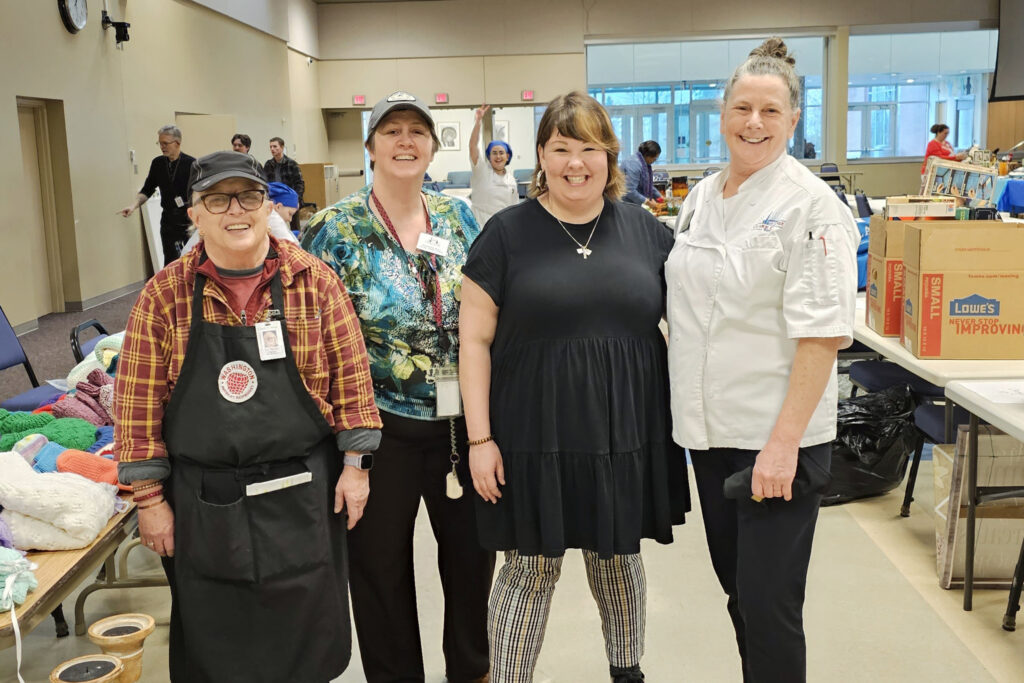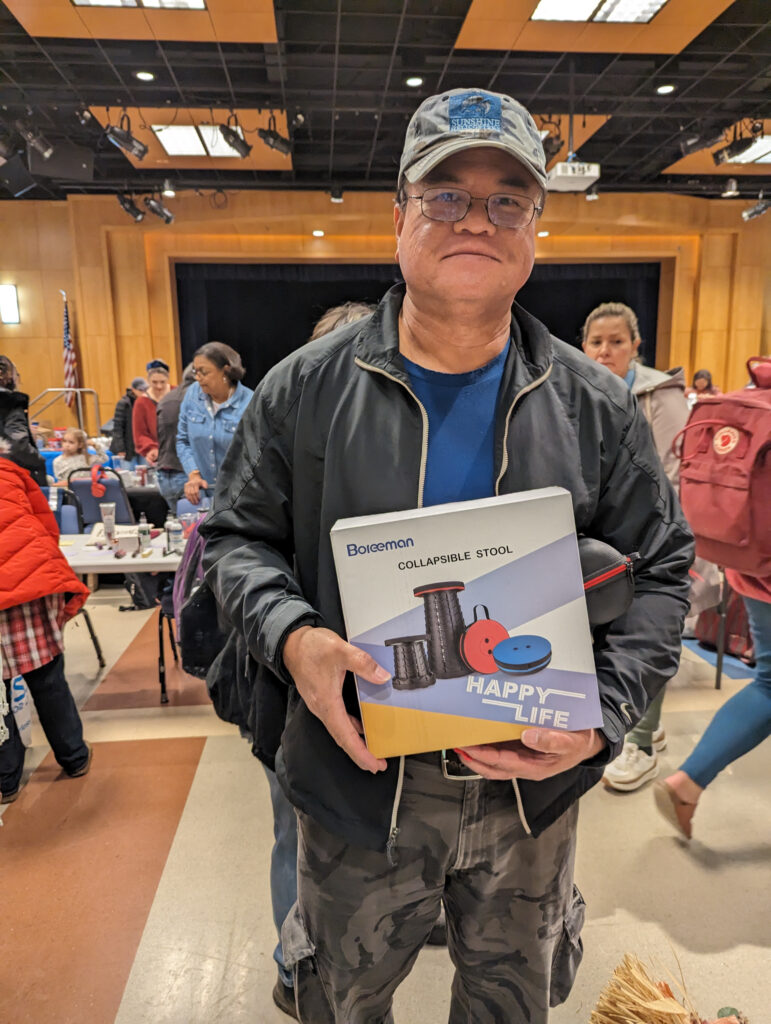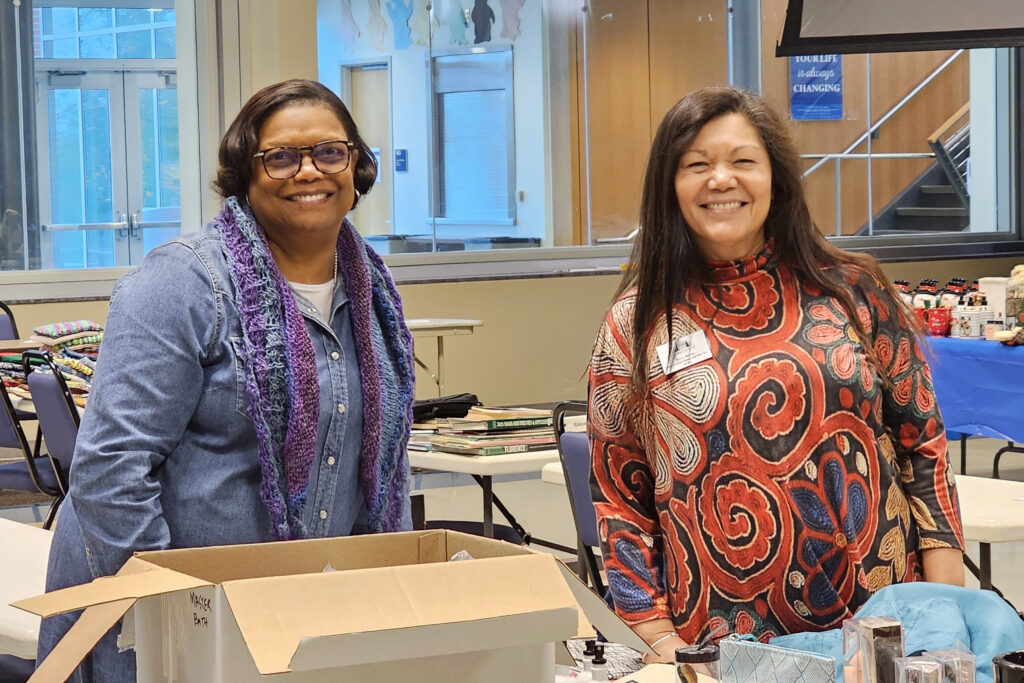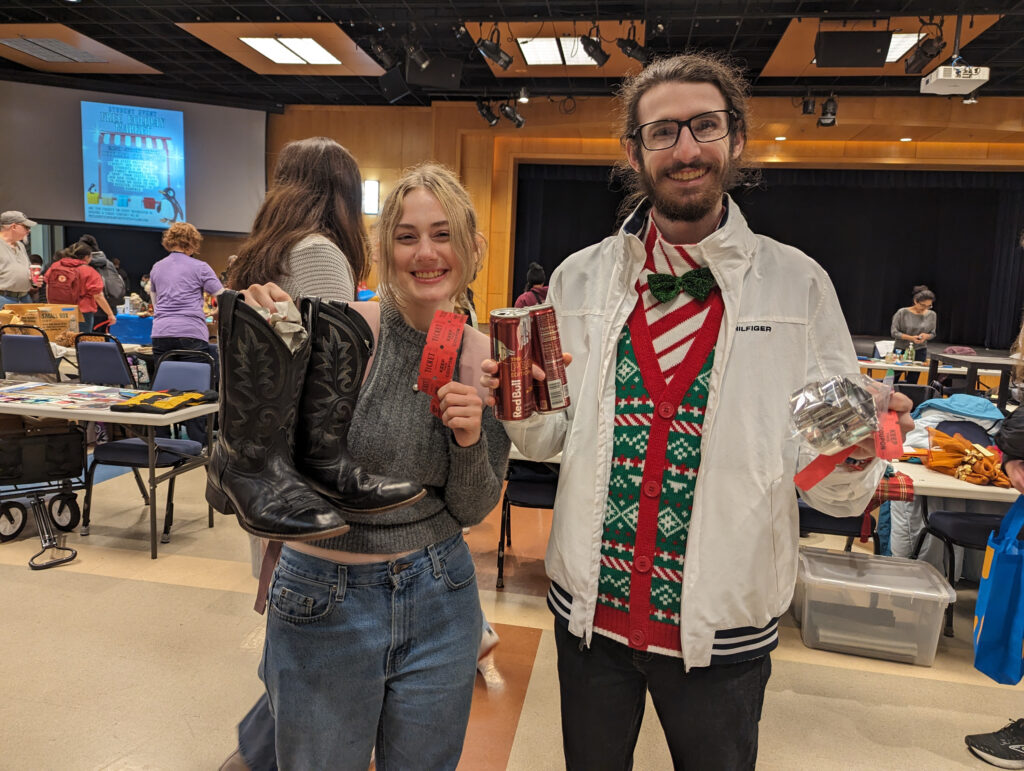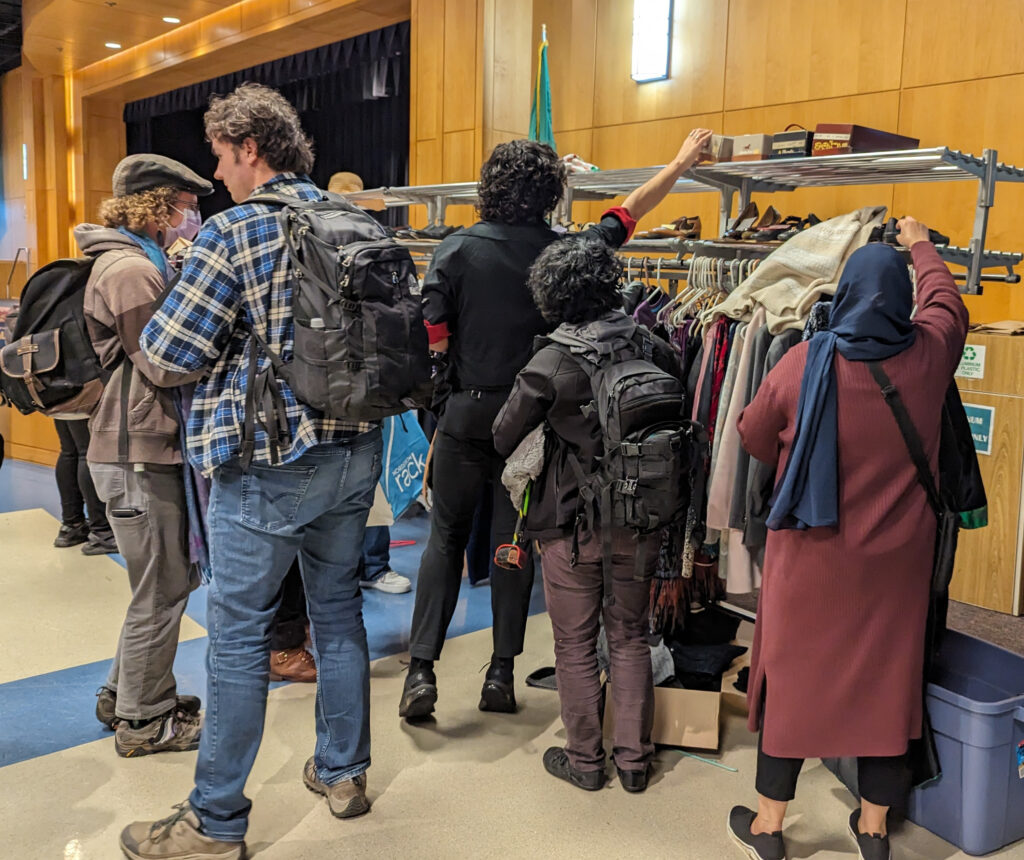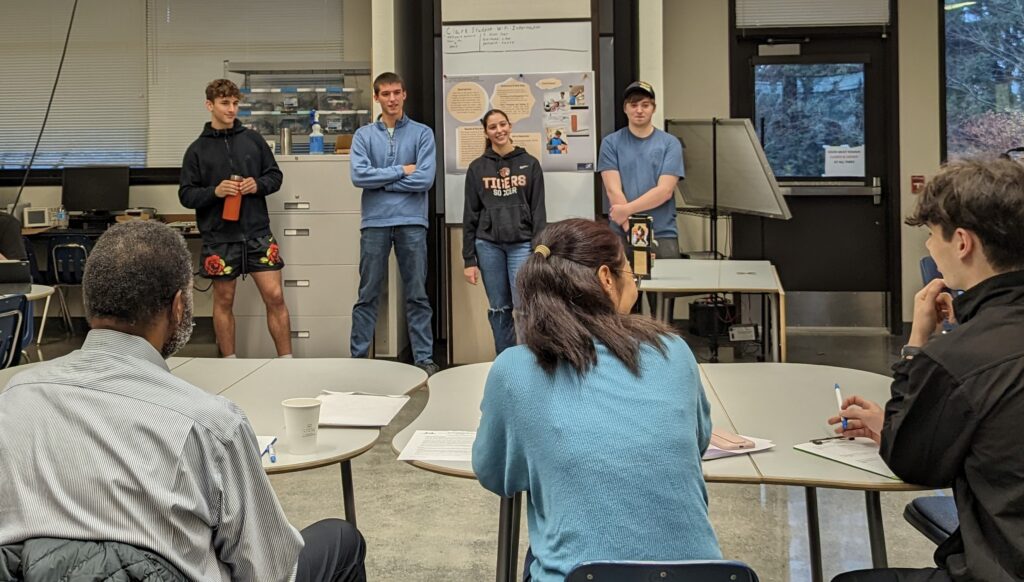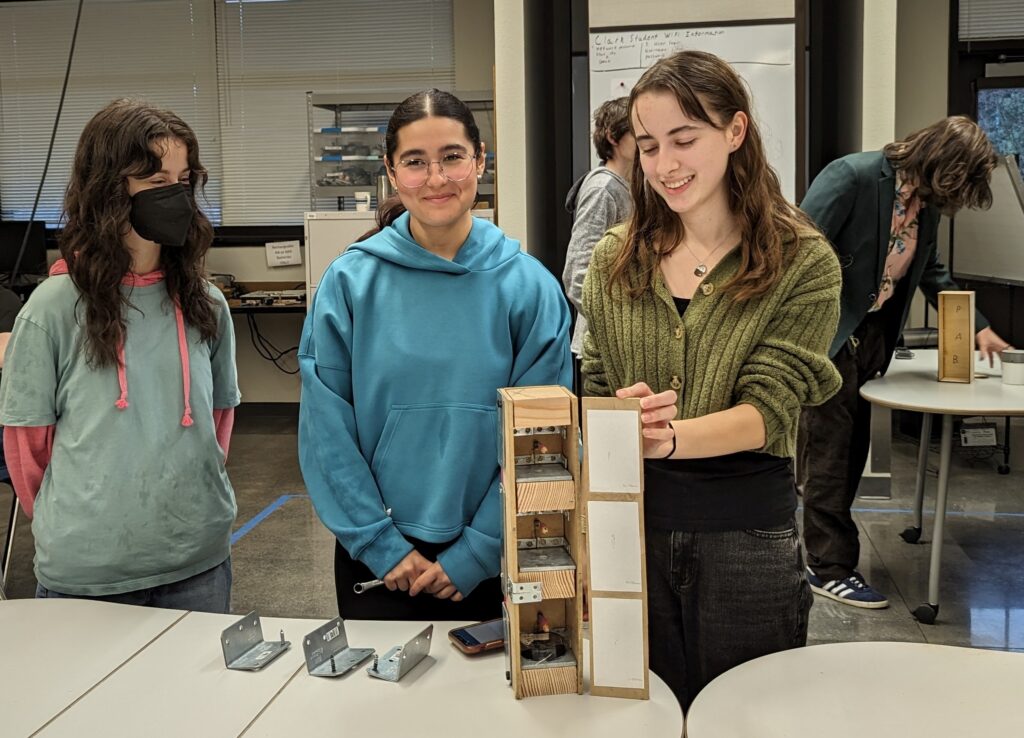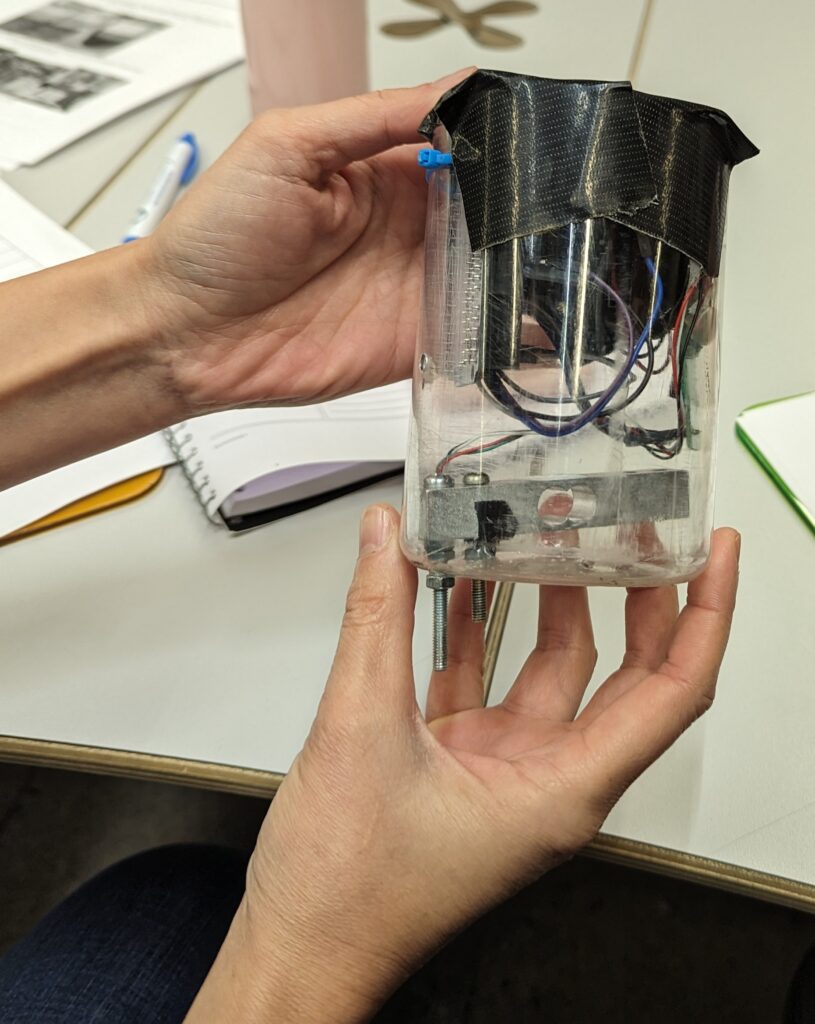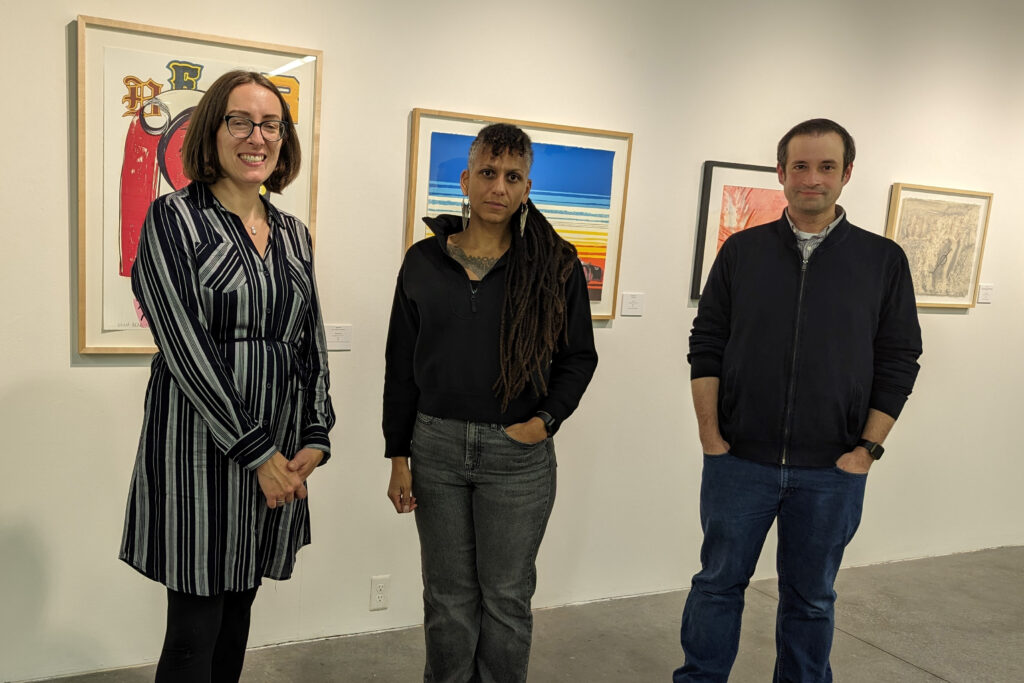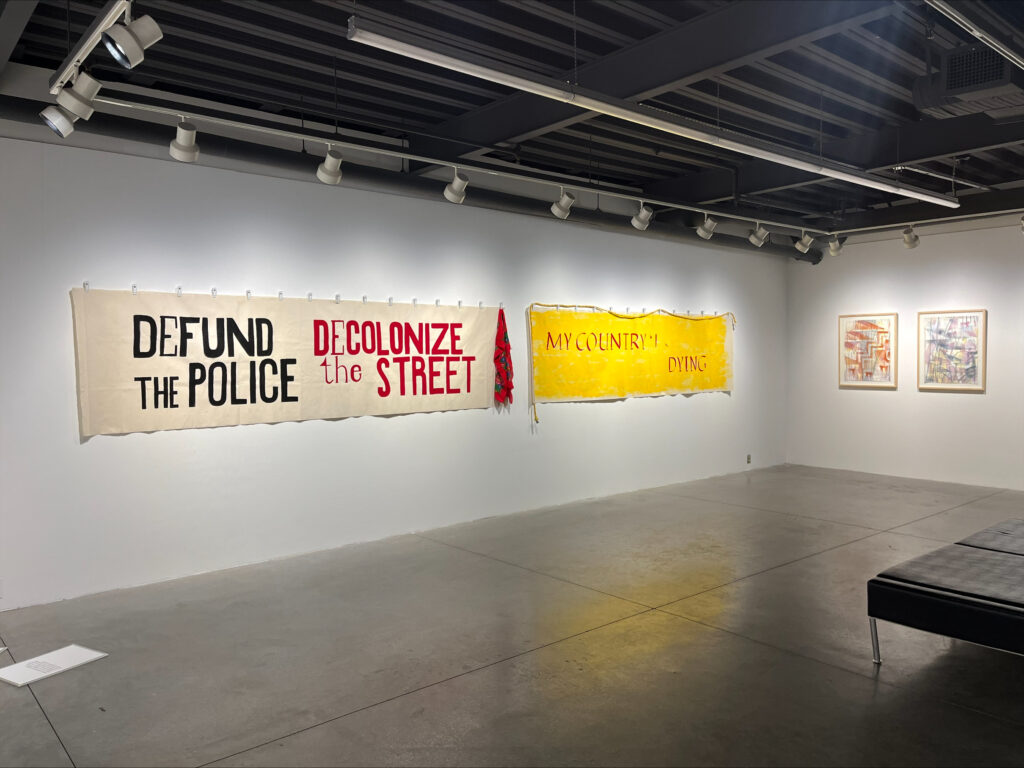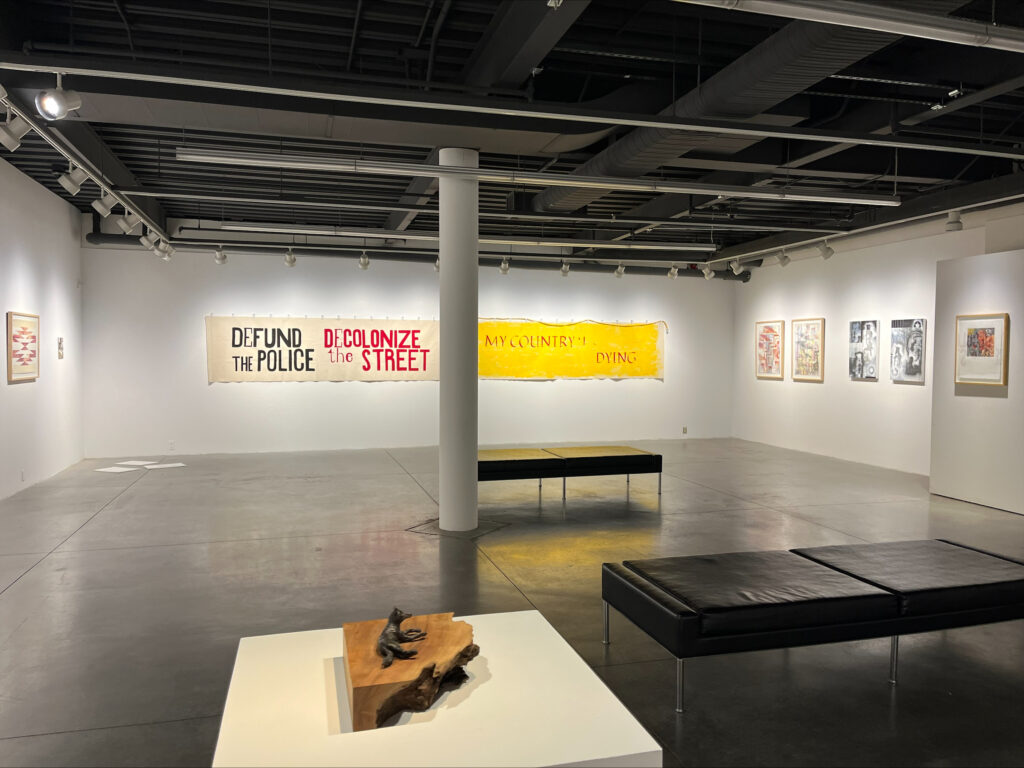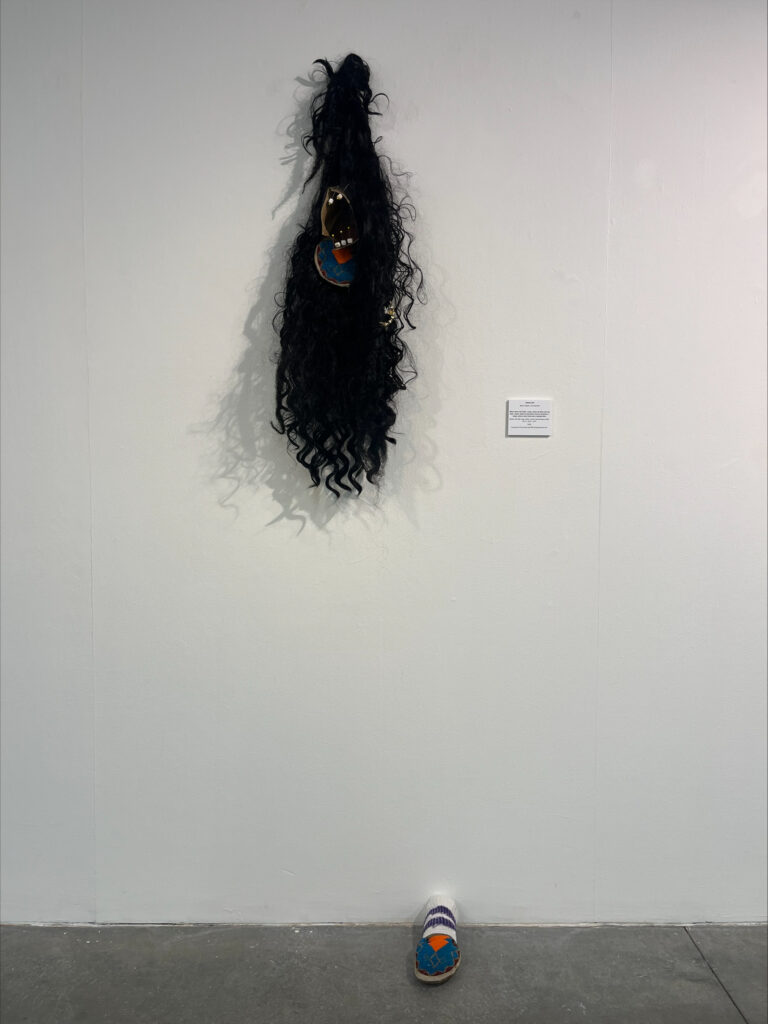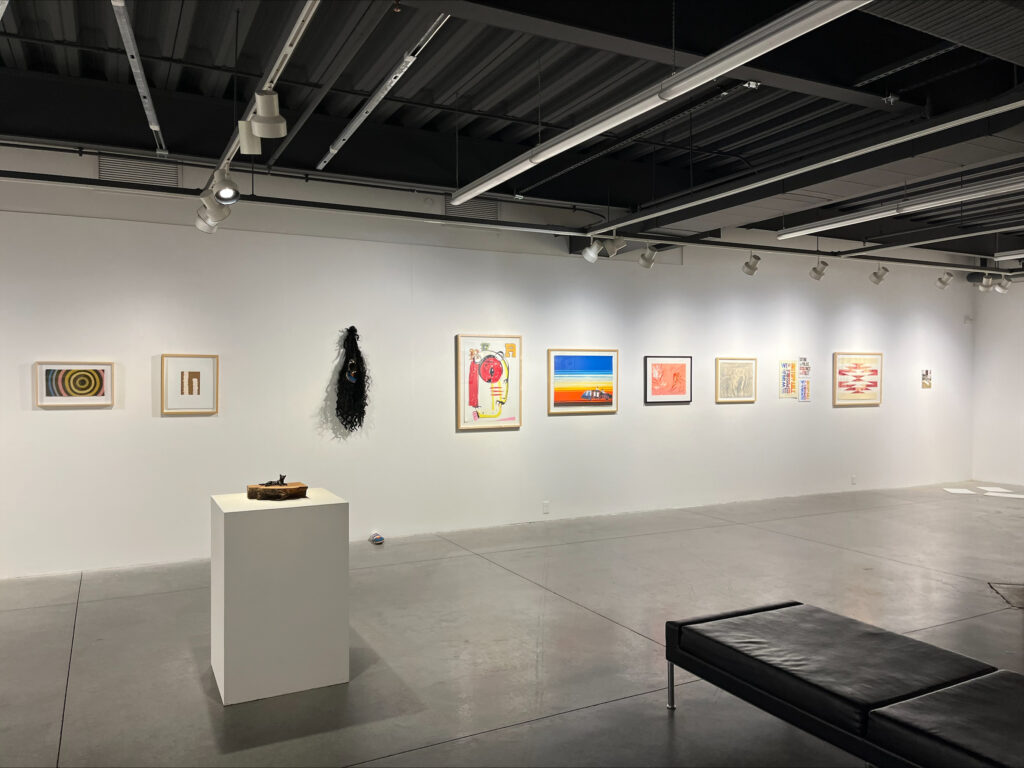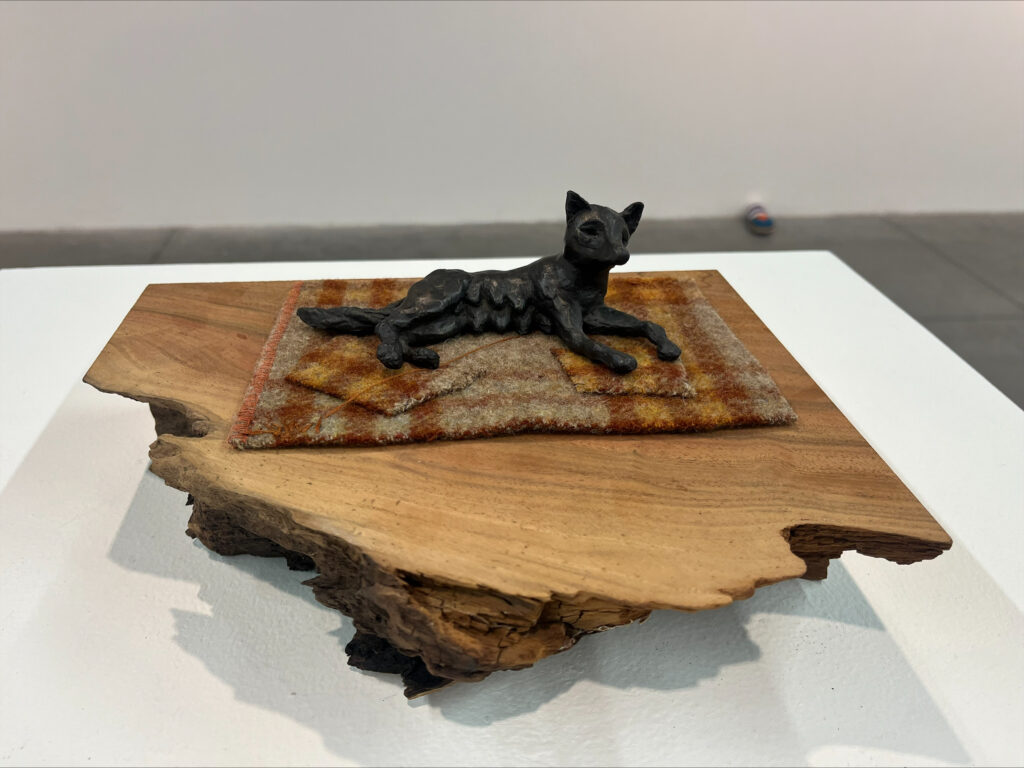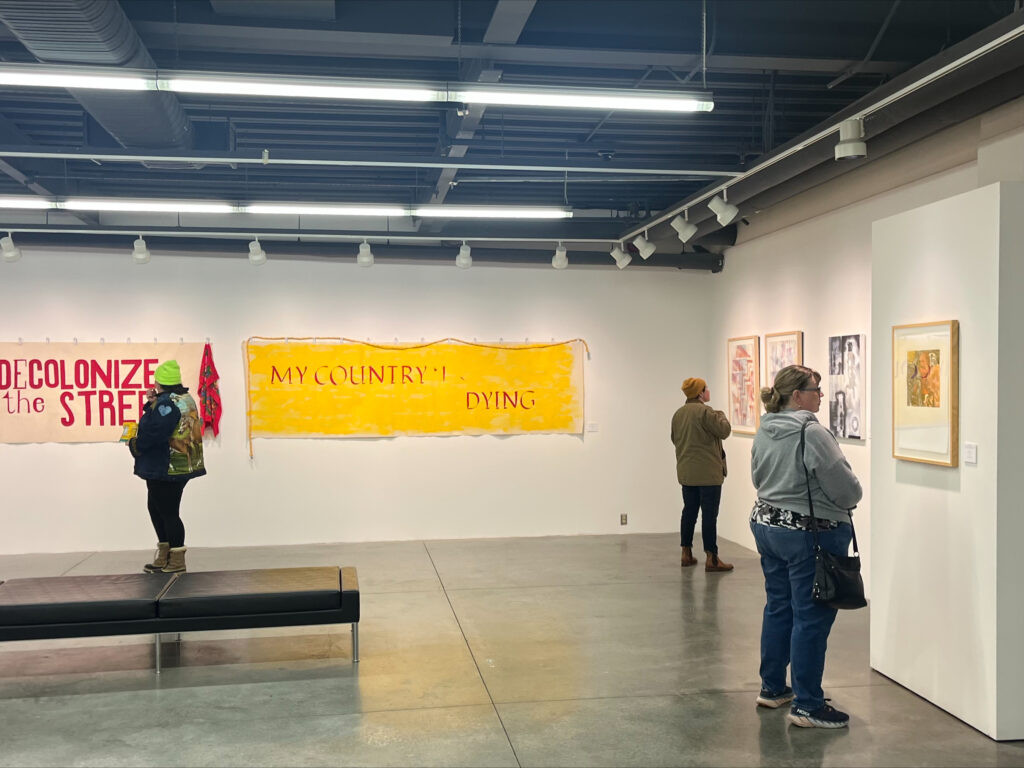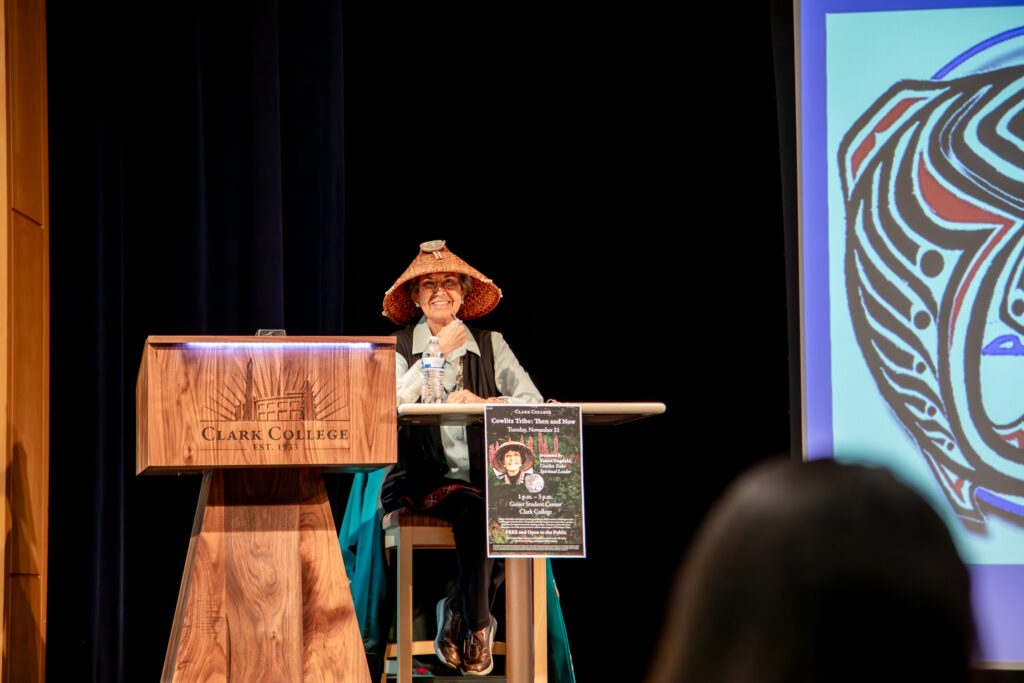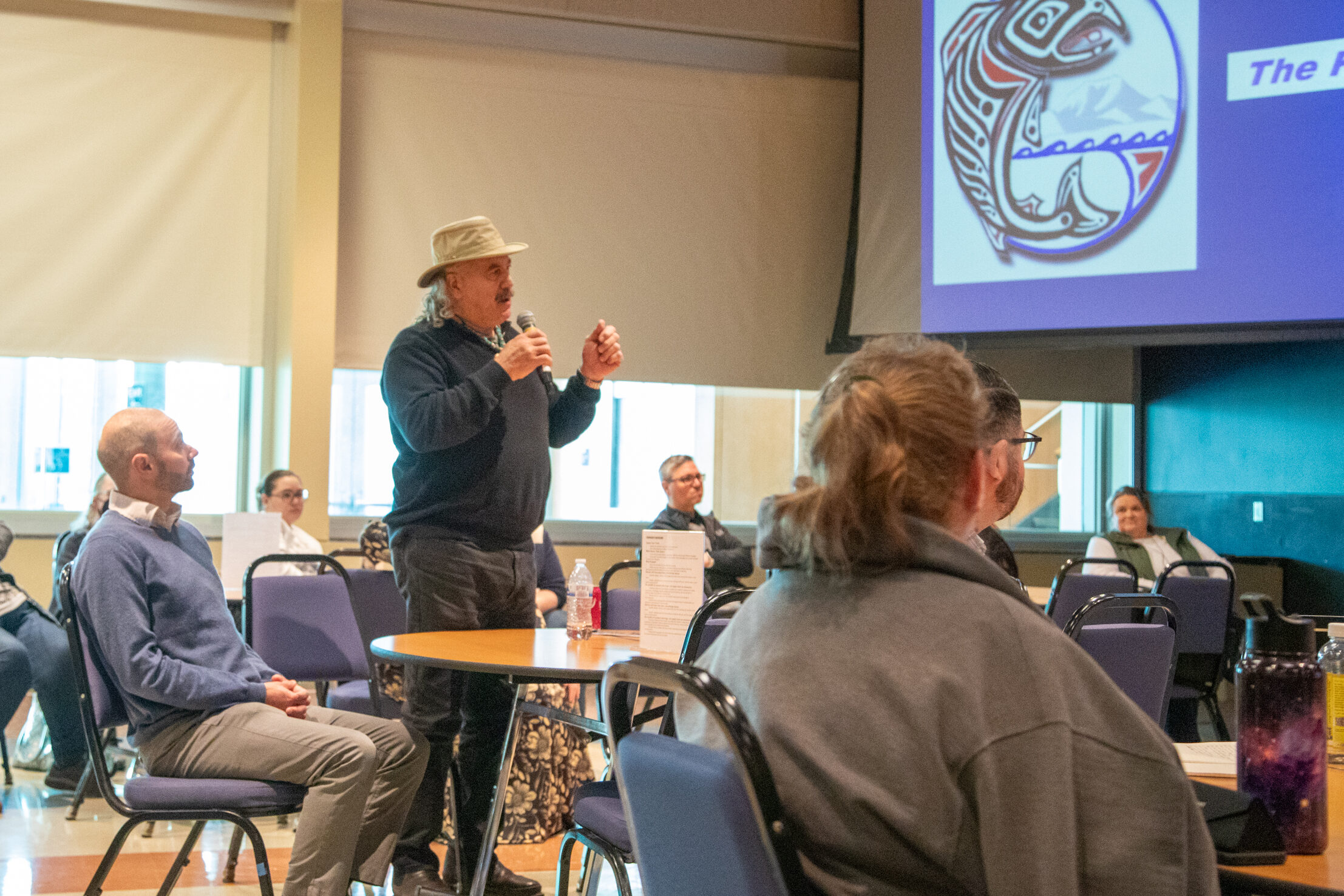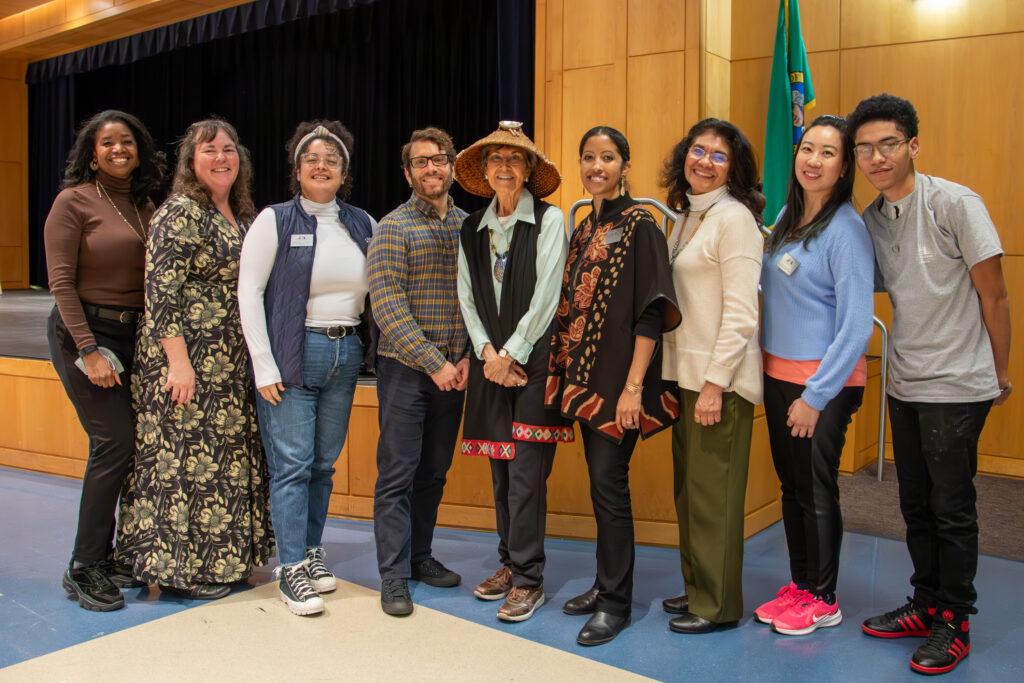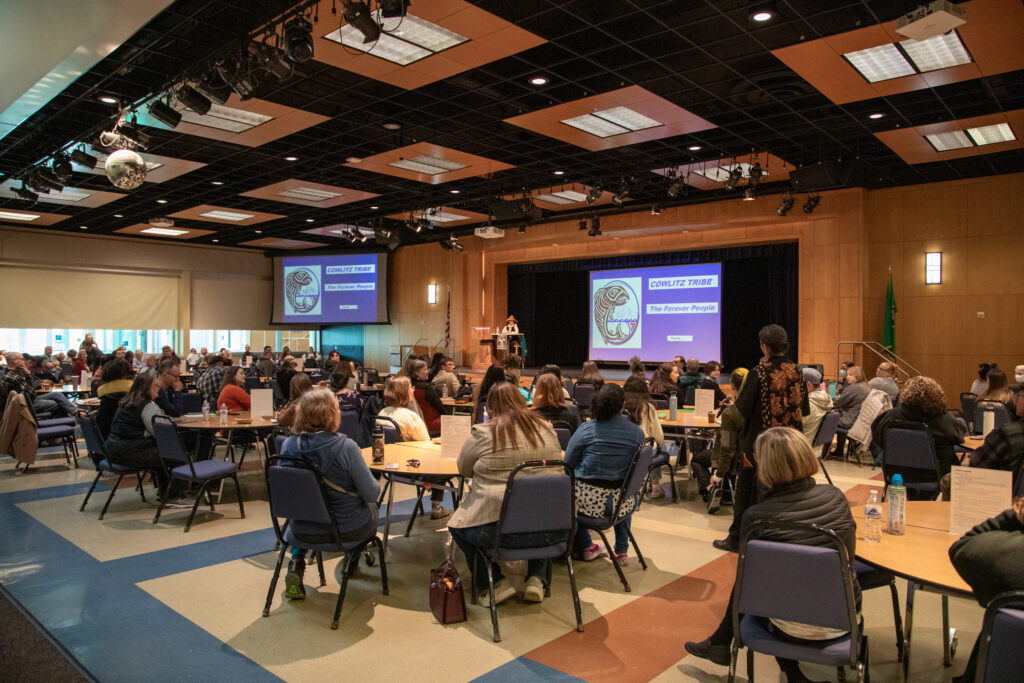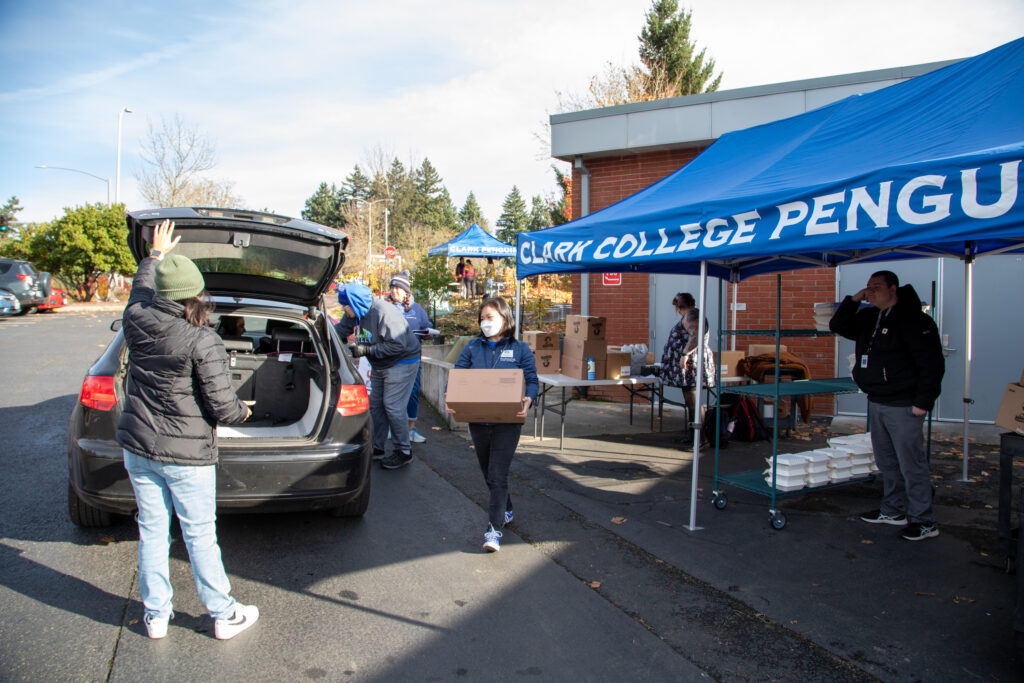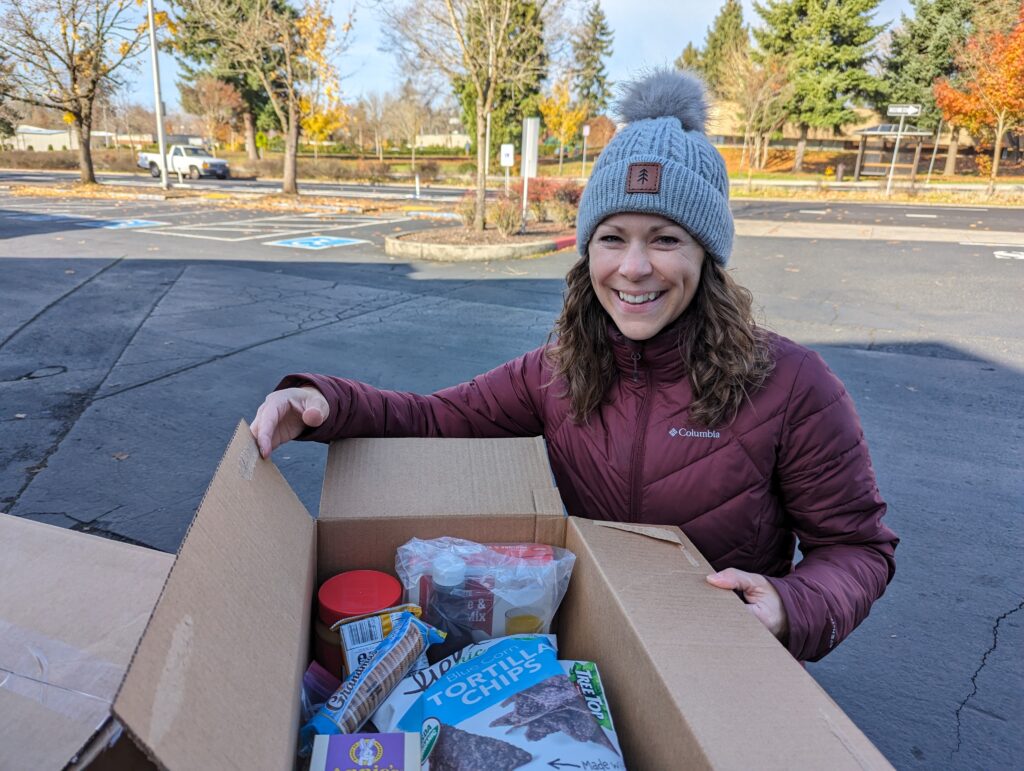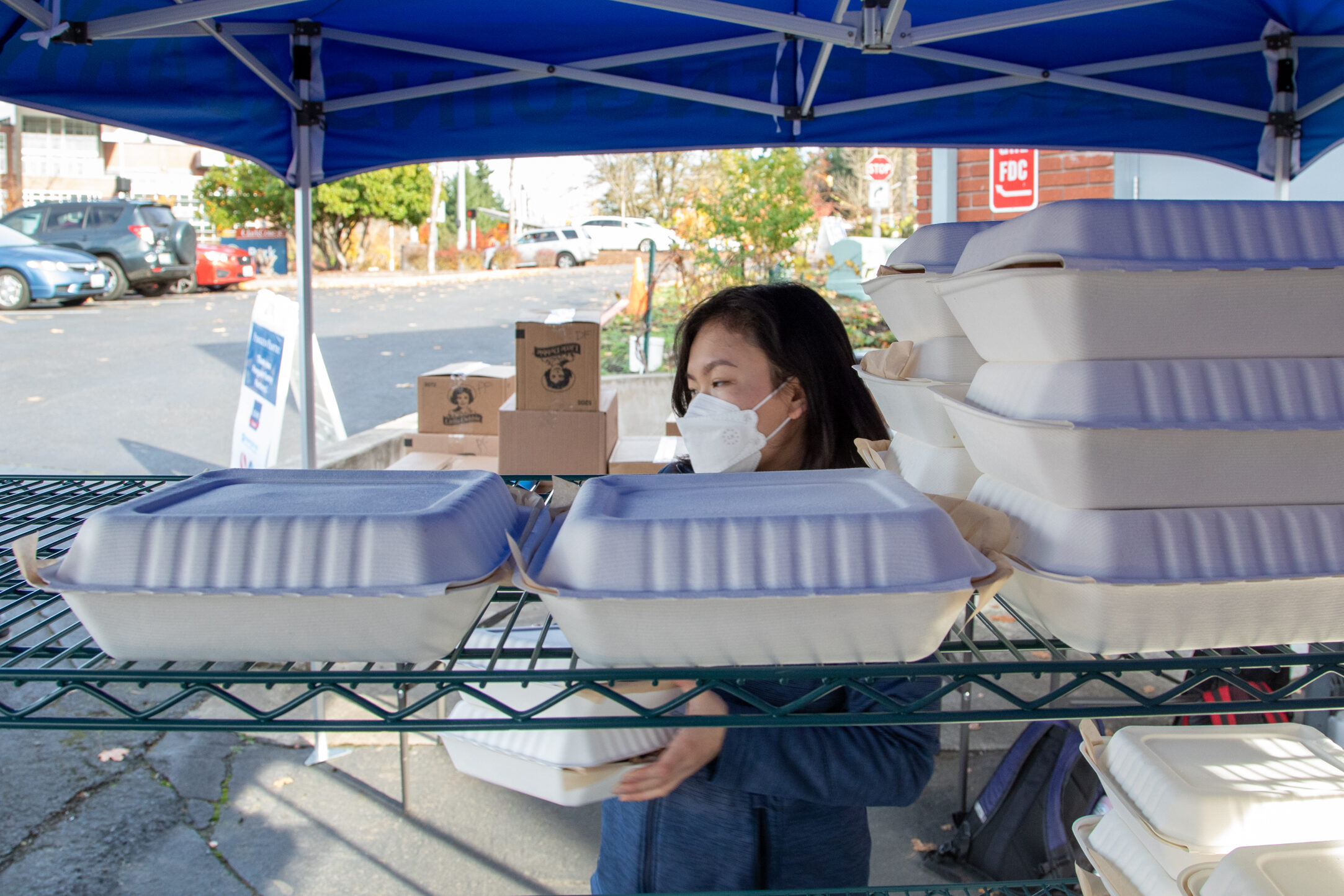60th Clark College Jazz Festival

If you’re a fan of jazz, you’re in for a treat, thanks in large part to the dedication of Dr. Doug Harris and the intrepid Shelly Williams, who bring the Clark College Jazz Festival to our campus every year.
Clark College will host the 60th Annual Clark College Jazz Festival in three full days of exhilarating big band jazz on Thursday through Saturday, January 25-27 in the Gaiser Student Center at 1933 Fort Vancouver Way.
Middle and high school jazz ensembles from Washington and Oregon are scheduled to perform in addition to a new attraction, a ticketed fundraising concert by the Grammy-nominated The One O’Clock Lab Band® from the University of North Texas on Wednesday, January 24. The Clark College Jazz Band will kick off the fundraiser event at 7:30 p.m. Tickets are $22 if purchased online through Jan 22 and $25 (cash only) at the door. All proceeds from the festival will go directly to student scholarships. View ticket info.

“We are so excited to present this year’s Clark College Jazz Festival, now celebrating our 60th anniversary. We are adding new attractions to this year’s festival,” said Clark’s Director of Bands and Festival Director Dr. Doug Harris. “We are thrilled to present the University of North Texas One O’Clock Lab Band® directed by Alan Baylock. This band is recognized as the preeminent collegiate big band in the world—and has held that distinction for decades. It will be a performance no jazz lover will want to miss.”
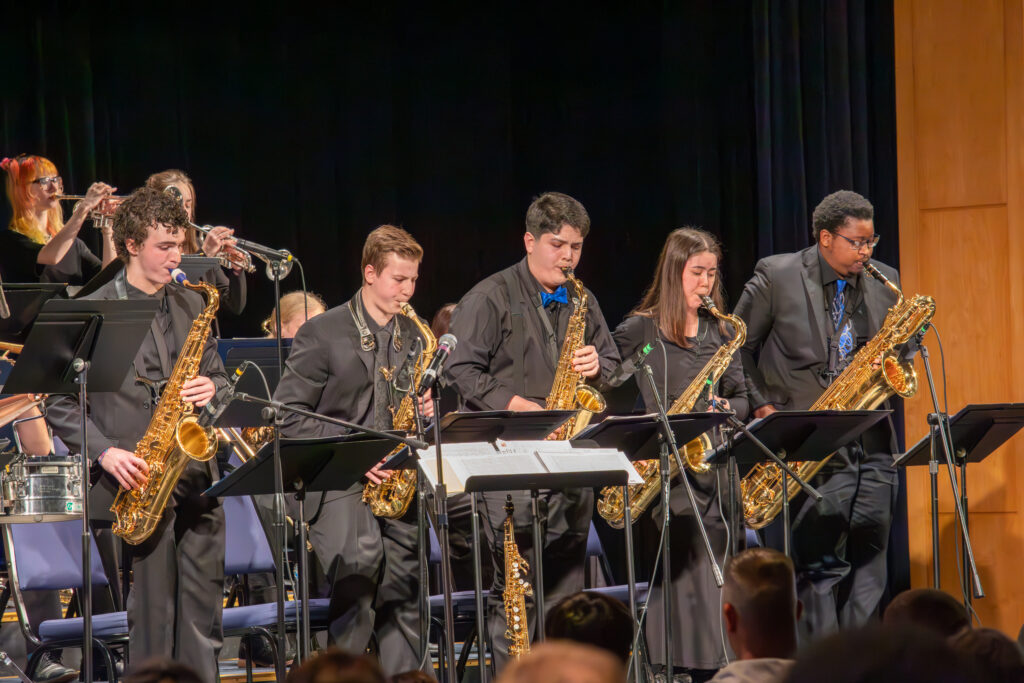
Special festival performances by the Clark College Jazz Band under the direction of Dr. Harris:
- 8:15 p.m. on Thursday, January 25
- 7:45 p.m. on Friday, January 26 with guest soloist Yamaha trumpet artist Allen Vizzutti
- 12:15 p.m. on Saturday, January 27
Another new event is that legendary trumpet player Allen Vizzutti will appear with the Clark College Jazz Band on Friday night. Harris said, “I first heard Allen when I was a freshman at the University of Florida and was amazed, as I’m sure our audience will be.”
The three-day event will culminate with last year’s Beacock Award-winning band, Mountain View High School Jazz I, directed by Sam Ormson performing on Saturday night.
Competition Highlights
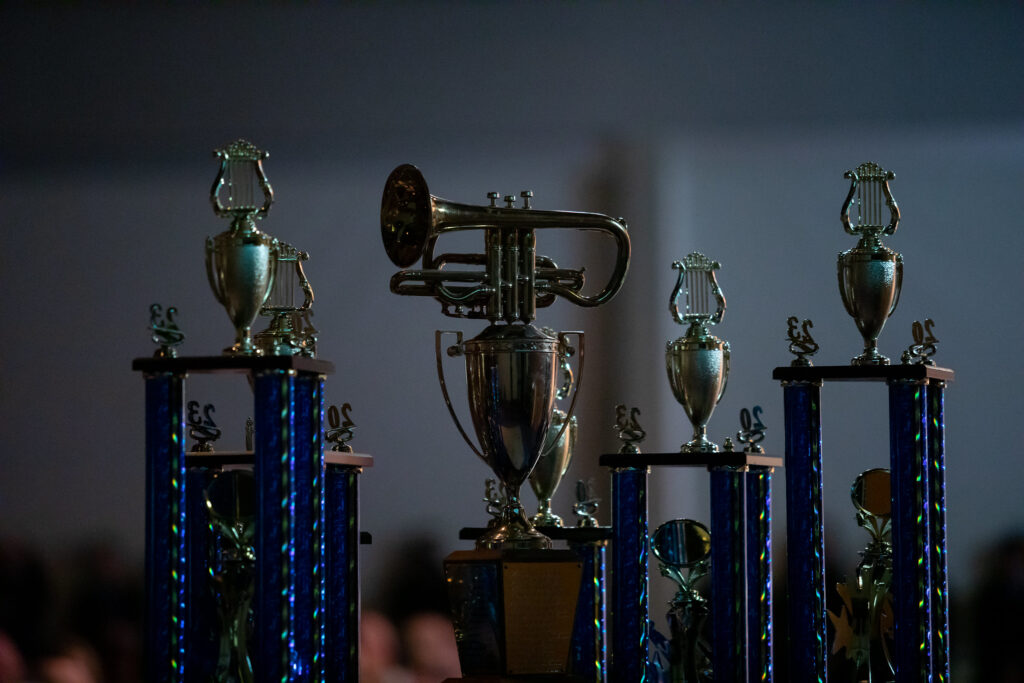
During this year’s competition, 56 middle and high school jazz ensembles from Washington and Oregon are scheduled to perform in this year’s competition with trophies presented to the top three jazz ensembles for middle schools and division A through division AAAA high schools.
Individual outstanding musician awards will be presented at the end of each division’s preliminary competitions. On Saturday evening, the Dale Beacock Memorial Sweepstakes Award will be presented to one outstanding band selected from the entire festival.
Dr. Harris said the event is not just a competition, but also a learning opportunity for the young musicians to participate in “valuable clinics from an outstanding group of jazz educators.”
The clinicians are Dr. Nate Jorgensen, Director of Jazz Studies at the University of New Hampshire on Thursday, and Seattle-based Yamaha artist Allen Vizzutti on Friday.
Overview – Clark College Jazz Festival
(Complete Jazz Festival schedule)
- Special! Wednesday, January 24: The festival will kick off with a 7:30 p.m. ticketed fundraising concert by The One O’Clock Lab Band from the University of North Texas
- Thursday, January 25: Middle school bands and Division A high school bands
- Friday, January 26: Division AA high school bands
- Saturday, January 27: Division AAA high school bands and Division AAAA high school bands
Admission is $10 per day. Clark College students and children under 12 accompanied by an adult will be admitted free of charge.
About Guest Artists
Yamaha Artist Allen Vizzutti has performed in 70 countries and every U.S. state with notable artists and ensembles including Chick Corea, Doc Severinsen, NBC Tonight Show Band, Army Symphony Orchestra, Chuck Mangione, Woody Herman, New Tokyo Philharmonic, Budapest Radio Orchestra, Saint Paul Chamber Orchestra, Leipzig Wind Symphony, and Slovenian National Orchestra. The Seattle-based musician is also a composer and recording artist.
Nominated for seven Grammy Awards, The One O’Clock Lab Band® from the University of North Texas jazz studies program is noted for its exceptional individual musicianship and tight ensemble performance. The band has performed throughout the U.S. and in 18 countries. The band also has performed at major jazz festivals, including Monterey, and at major jazz venues, including Birdland in New York City.
About Clark College Jazz Festival
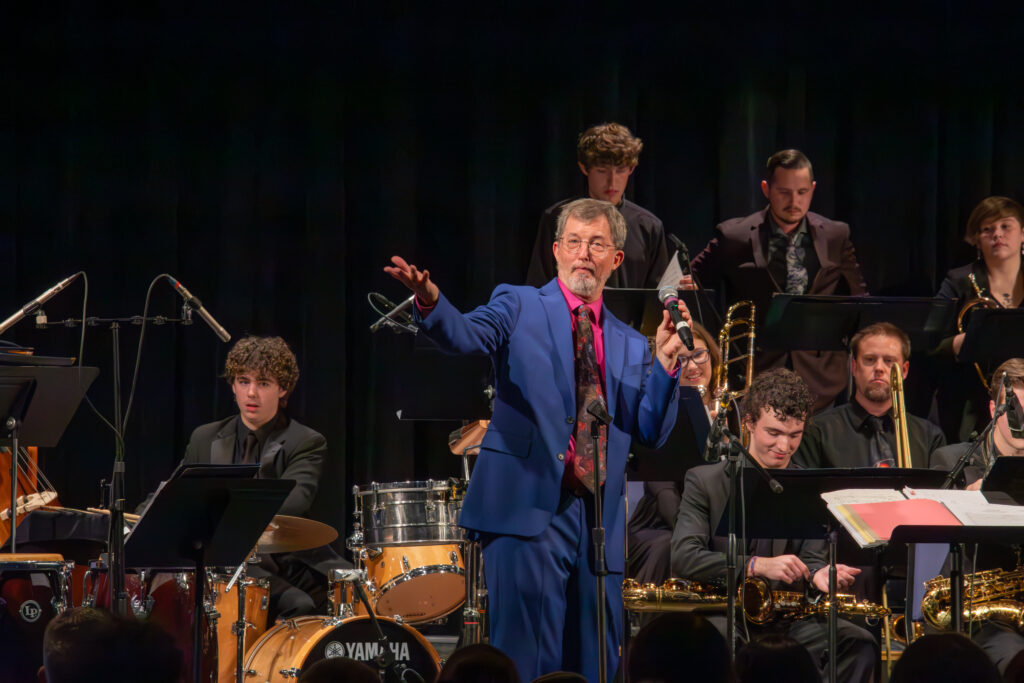
Dr. Doug Harris has been director of bands at Clark College since Fall 2018. Previously, he was assistant director of bands at Western Kentucky University, director of bands at Santa Clara University and Southern Utah University and a high school band director in Florida. Harris received his Bachelor of Music Education from the University of Florida and his Master of Arts and Doctor of Arts degrees from the University of Northern Colorado. As a freelance trumpet player, Dr. Harris has performed with the Madison Scouts, Sacramento Mandarins, Teal Sound and Suncoast Sound Drum and Bugle Corps. He is an active clinician, adjudicator, composer, arranger, and transcriber.
History of the Clark College Jazz Festival
- 1962: The beginning: Hudson’s Bay High School band director, Don Cammack, organized a one-day high school stage band invitational, the Southwest Washington Jazz Festival, for schools from Clark and Skamania counties.
- 1962-1969: The festival was organized by Vancouver and Evergreen public schools. Fort Vancouver High School and Evergreen High School took turns hosting. In the early days, trophies were made by middle school band director Jack Ager, who constructed musician figures from miscellaneous hardware and car parts.
- 1965: The festival grew to include bands from 8 high schools and 3 junior high schools. The program, called Jazz at the Fort, was directed by music educator Dale Beacock.
- 1970: Dale Beacock, then band director at both Clark College and Fort Vancouver High School, held the invitational Clark Stage Band Contest for the first time at Clark College. This inaugural event hosted 17 high school jazz bands with preliminary competitions held in the Gaiser Hall dining area, with finals in the gymnasium. Beacock’s vision of a competitive jazz showcase for schools throughout Washington and greater Portland promoted the growth of the festival.
- 1971: The festival grew to 32 bands held over two days.
- 1976: The number of participating bands grew to 52, welcoming bands from Oregon and Idaho.
- 1985: Chuck Ramsey became festival coordinator, a position he held for 22 years. He brought consistency to festival operations, increased student involvement, set the groundwork for the educational enhancement, leadership, teamwork, and a sense of ownership by Clark student volunteers.
- 2008: Richard Inouye became festival director. His professional and educational experience brought a new dynamic by encouraging a focus on jazz education and using technology to promote community awareness, public support, and streamline festival operations.
- 2012: Clark College Jazz Festival celebrated it’s 50th anniversary. Highlights included the Clark College Alumni Band directed by Chuck Ramsey featuring Clark band alumni from three generations of Clark band directors. Beacock and Ramsey were presented Legacy Sweepstakes Awards for their historic contributions to the festival.
- 2013: The festival went international, welcoming two bands from Tsawwassen, B.C.
- 2021-2022: The festival was on hiatus during the COVID-19 pandemic.
- 2024: The 60th Annual Clark College Jazz Festival welcomes 56 middle and high school jazz ensembles, more than 1,200 student musicians and more than 3,000 people during the three-day event.
For Jazz Festival details, contact Shelly Williams, 360-992-2662 or sjwilliams@clark.edu
Useful links:

- Purchase Jazz Festival tickets here
- University of North Texas’ The One O’Clock Lab Band® (Jan. 24 fundraising concert)
- Clinicians Nate Jorgensen (Thursday) and Yamaha Artist Allen Vizzutti (Friday)
- 60th Jazz Festival memorabilia merchandise
- Donate to the Clark College Jazz Festival here
- View the schedule for all Clark College Music Department 2024 concerts.
Photos (unless noted): Clark College/Jenny Shadley
